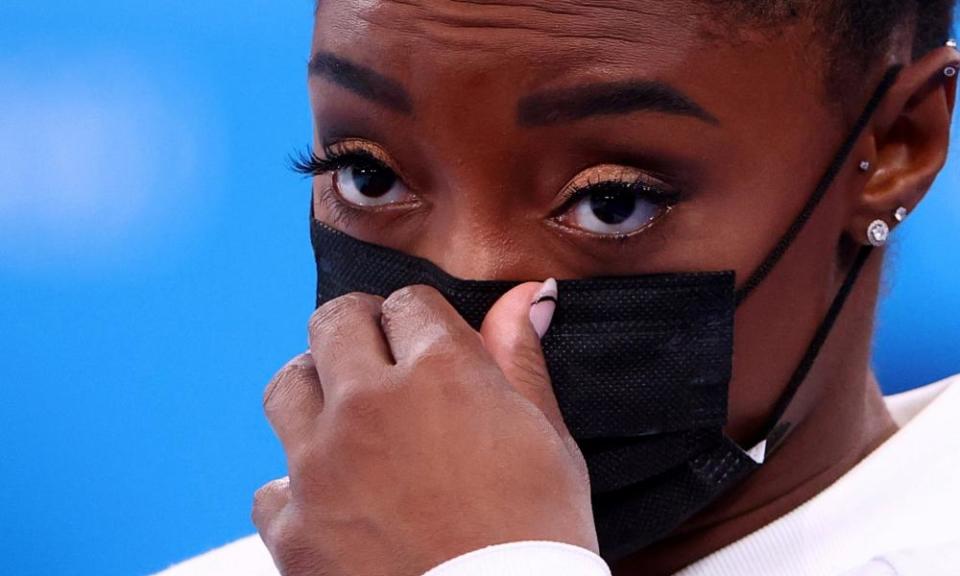Simone Biles’ twisties: mental block which puts gymnasts at serious risk

Simone Biles almost never misses her Amanar vault. There are numerous times when she has peeled off during uneven-bar routines, when her landings on floor have contained steps the size of canyons and, certainly, when she has wanted to take a saw to the balance beam and split it in half. But the Amanar, as dangerous and difficult as it is, always has been one of her most trusty skills.
So when she completely lost her way in the middle of its two and a half twists during the women’s team final at the Tokyo Games, it was clear something beyond the ordinary was wrong.
Related: Simone Biles wins all of my medals | Maeve Higgins
Biles’s withdrawal during the women’s team final and her subsequent exit from the all-around final on Thursday in order to preserve her mental health has also underlined the dangers inherent in gymnastics and the necessity of being in the right frame of mind in order to even attempt it.
During her late-night press conference on Tuesday, Biles explained that she also had “twisties”, a word for a mental block in which gymnasts lose their spatial awareness in the middle of complex skills. It is a well-known, terrifying and dangerous sensation for gymnasts.
Among many others, Aleah Finnegan, a gymnast on the USA national team, was prompted to speak about the subject on Twitter. “I’ve had the twisties since I was 11,” she wrote. “I cannot imagine the fear of having it happen to you during competition. They have very limited equipment and mats in Tokyo to help something like this get fixed let alone within a day. You have absolutely no control over your body and what it does.”
So much of gymnastics is mental and where the sport differs from many others is that if gymnasts are not in the right frame of mind to execute their dangerous skills, they will not simply run slower or strike a ball into a fence. Each complex skill comes with the risk of serious injury, and it is something they are keenly aware of each day. By preserving her mental health, Biles is also protecting herself physically.
Download the Guardian app from the iOS App Store on iPhones or the Google Play store on Android phones by searching for 'The Guardian'.
If you already have the Guardian app, make sure you’re on the most recent version.
In the Guardian app, tap the yellow button at the bottom right, then go to Settings (the gear icon), then Notifications.
Turn on sport notifications.
As she has prompted discussion around the world, a heartening sight has been the countless gymnasts who have offered their support to her. After the men’s all-around final, Sam Mikulak talked passionately about his US compatriot, whose success he has shared as longtime national champions. “We’ve had some conversations,” he said. “She seems like she’s doing what’s best for her. It’s awesome to see that she’s gotten to go against the pressure of society and do what’s best for herself.
“I am really proud of her for prioritising mental health and making sure that everyone knows and understands that we’re not just athletes. We’re human beings, and sometimes it’s too much, and when that’s the case you have to do what’s best for you. She seems like she’s in good spirits. She’s very happy with her decision. Everyone was trying to just pick her up and make her smile. She’s a very smiley girl in general, so that wasn’t too hard to do.”
Mikulak, who plans to retire after Tokyo, talked about the weight of expectations that spring up along with success. “You go on Twitter and everyone’s like: ‘Oh, I’m really expecting this. I want this from this person. Oh, Simone is going to be the medal factory of the world.’”

 Yahoo Sport
Yahoo Sport 



































































